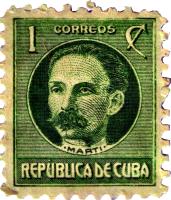
Timetable History of Cuba

The timetables are the oldest and largest single segment of this site. Here you will find a linear journey through more than 500 years of Cuban history, and you'll encounter the lives of José Martí, Antonio Maceo, Juan Gualberto Gómez, Fulgencio Batista and many others who contributed to Cuba's long and complex history.
From the arrival of Cristóbal Colón in 1492, through the conquest of Cuba and the new world and the capture of Havana by British pirates in 1762, and up to the time of the Castro brothers, Che Guevara and the economic embargo, the Cuban story sparkles with passionate drama, heartbreak, the struggle for freedom and the desire for independence.
By the time Cubanismo grew into the Cuban Independence Movement of 1868-1898, Spain had lost all but 2 of her colonies in the new world (Cuba and Puerto Rico) and was committed to doing whatever was necessary to hold on to them. In Cuba, this meant harsher governmental authority, more brutal methods of suppression, and a longer lifespan for the practice of slavery.
This increased callousness towards the Cubans led directly to Carlos Manuel de Céspedes' historic Cry of Yara (Grito de Yara) and the ensuing Ten-Year War. It was here that modern Cuba was forged by the likes of Maximo Gómez, the Maceos, Flor Crombet, Ignacio Agramonte and many other figures that played vital roles in forging the Cuban identity and bringing war against the Spanish Empire.
These timetables are a continuing work in progress. You can track the people and events that give Cuban history its flavor and “significance,” and maybe you’ll be able to speculate on why empires have such difficulty letting go of the “pearl of the Antilles,” and why the Cuban people continue to struggle for freedom after half a millennia.
Could it be the open unification of black and white ethnicities that frightens and angers empires? The beautiful beaches, tropical climate and rolling green hills that make them want to possess the island? Is it a business decision or an unfortunate circumstance of geography? Or is it just a bad habit that can’t be broken easily, like smoking or salty foods?

“We have always been an imperialistic country,” wrote Harry Elmer Barnes (of the U.S.) in the editor’s introduction to ‘Our Cuban Colony; A Study in Sugar’ by Leland Hamilton Jenks in 1928. That fact has not changed, particularly in relation to Cuba. But how long can that tradition continue in light of recent cultural and political changes in the U.S. and throughout the world?
“History is a poor prophet,” Jenks wrote in his book. “There is no further clue as to what will become of America’s special interests in the Caribbean other than what has been done with them in the past.”
Following this timeline may give you some insights into these questions, and it is likely that they will generate new ones, regardless of your politics.
The Timetables start here